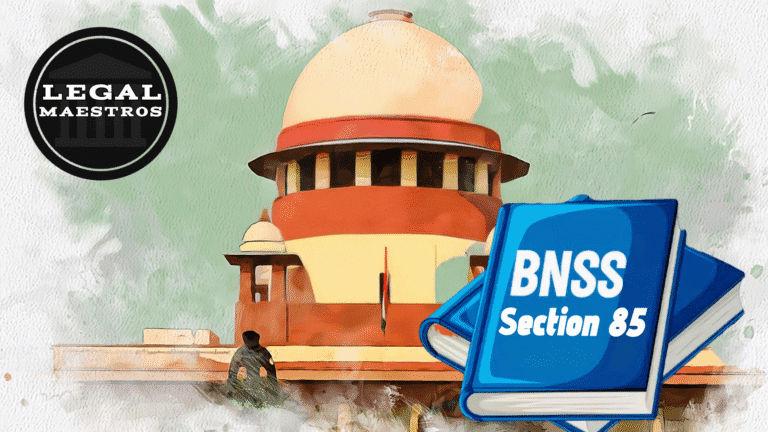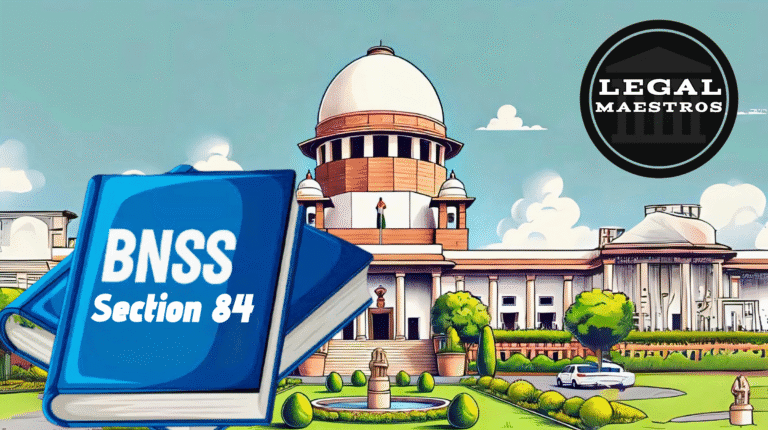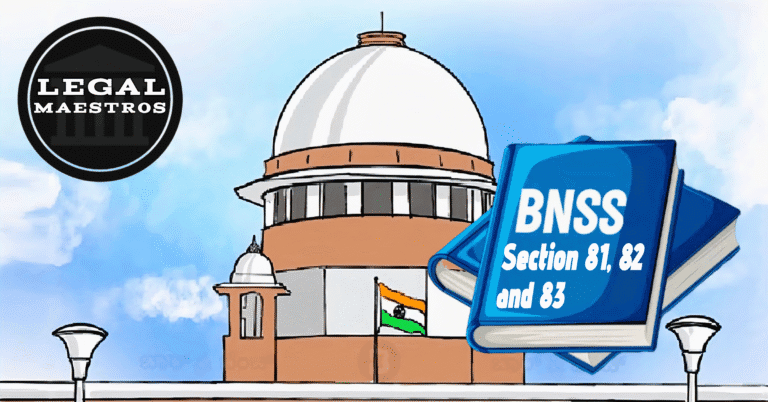
Section 20: Directorate of Prosecution
Establishment of the Directorate Section 20 of the Bharatiya Nagarik Suraksha Sanhita, 2023 grants the State Government the authority to establish an organization that would be known as the Directorate of Prosecution. The establishment of this organization takes place at both the state and district levels in order to guarantee the appropriate management and supervision of prosecutions in cases involving criminal convictions.
When it comes to the state level, the Directorate is made up of a Director of Prosecution and as many Deputy Directors of Prosecution as the State Government deems to be required.
Depending on the requirements of the State Government, a District Directorate of Prosecution may be established at the District level. This Directorate may consist of Deputy Directors and Assistant Directors of Prosecution. This framework, which consists of two levels, guarantees that the prosecution system operates well and that it encompasses all regions of the state.
For any queries or to publish an article or post or advertisement on our platform, do call at +91 6377460764 or email us at contact@legalmaestros.com.
Criteria for Obtaining an Appointment
The Sanhita specifies the qualities that must be met in order to be appointed to various posts within the Directorate of Prosecution.
It is necessary for a person to have been an advocate for a minimum of fifteen years in order to be eligible for the position of Director of Prosecution or Deputy Director of Prosecution. Alternatively, the individual must be or have existed as a Sessions Judge.
In order to be qualified for the position of Assistant Director of Prosecution, an individual must either have been a Magistrate of the First Class or have been an advocate for a period of at least seven years.
For any queries or to publish an article or post or advertisement on our platform, do call at +91 6377460764 or email us at contact@legalmaestros.com.
Because of this, senior positions in the prosecution department are restricted to just those individuals who have extensive expertise in the legal field or who are judicial officers.
System of Administrative Hierarchy
Managing the Directorate and working under the administrative supervision of the Home Department of the State, the Director of Prosecution is the head of the Directorate. This individual is responsible for overseeing the entire system and ensuring that justice is administered in an effective manner.
Under the direction of the Director of Prosecution, the Deputy Directors and Assistant Directors are considered to be subordinate. In addition, the Assistant Directors are reported to the Deputy Directors, who are the highest possible authority. This well-defined chain of command guarantees that all levels will be held accountable and that operations will run smoothly.
For any queries or to publish an article or post or advertisement on our platform, do call at +91 6377460764 or email us at contact@legalmaestros.com.
Under the supervision of the Public Prosecutors
Each and every Public Prosecutor, Additional Public Prosecutor, and Special Public Prosecutor who has been appointed by the State Government to handle matters in the High Court is accountable to the Director of Prosecution.
Individuals who are assigned to handle cases in District Courts or those who are appointed as Assistant Public Prosecutors are considered to be subordinate to either the Deputy Director or the Assistant Director of Prosecution. When it comes to matters pertaining to prosecution, this hierarchical structure guarantees adequate coordination and management.
The Director of Prosecution Exercises the Following Powers and Functions:
As part of their duties, the Director of Prosecution is accountable for overseeing the prosecution of significant criminal offenses, which can result in a sentence of ten years or more, life imprisonment, or even death.
For any queries or to publish an article or post or advertisement on our platform, do call at +91 6377460764 or email us at contact@legalmaestros.com.
For instance, if a person is charged of murder, which is a crime that can result in either life imprisonment or death, the Director of Prosecution will keep an eye on how the case is progressing in court. In addition to this, the Director will offer legal advice regarding whether or not an appeal need to be filed following a certain verdict.
The Deputy Director of Prosecution Possesses the Following Powers and Functions:
In situations where the sentence is seven years or more but less than ten years, it is the obligation of the Deputy Director of Prosecution to review the police reports and keep an eye on the cases.
For instance, if a person is charged with violent assault resulting in grievous injury, which carries a sentence of eight years in prison, the Deputy Director will oversee the case to ensure that it is finished without any needless delays.
For any queries or to publish an article or post or advertisement on our platform, do call at +91 6377460764 or email us at contact@legalmaestros.com.
The Assistant Director of Prosecution is responsible for many functions.
It is the responsibility of the Assistant Director of Prosecution to make decisions on instances in which the sentence is less than seven years.
For example, the Assistant Director of Prosecution would be responsible for overseeing the case of a theft that carries a maximum sentence of three years in prison given the circumstances.
A General Authority
Subsection (10) grants the Director, Deputy Director, and Assistant Director of Prosecution the ability to oversee any and all sorts of legal processes that fall under the purview of the Bharatiya Nagarik Suraksha Sanhita, 2023. This is the case despite the fact that specific tasks are allocated based on the severity of the punishment.
For any queries or to publish an article or post or advertisement on our platform, do call at +91 6377460764 or email us at contact@legalmaestros.com.
This indicates that any of these officers may take over any case, regardless of the punishment that is involved, depending on the necessity of the situation or the degree of difficulty of the case.
The powers of notification held by the state government
In the event that a notification is issued, the State Government possesses the right to define new powers and responsibilities that are assigned to the Director and Deputy Directors. This not only assures flexibility but also gives the government the ability to modify the responsibilities in accordance with the shifting needs or the particular requirements of the region.
In addition, the government may communicate the categories of responsibilities that will be assigned to each Deputy Director of Prosecution.
For any queries or to publish an article or post or advertisement on our platform, do call at +91 6377460764 or email us at contact@legalmaestros.com.
A special case for the Advocate General…
It is made abundantly apparent that the provisions of this section do not apply to the Advocate General of the State when they are carrying out their duties as a Public Prosecutor. In accordance with this law, the Advocate General is able to carry out their duties independently of the Directorate of Prosecution.
Section 21: Courts by which Offences are Triable
2023: The year of jurisdiction under the Bharatiya Nyaya Sanhita
There are rules that are outlined in Section 21 of the Bharatiya Nagarik Suraksha Sanhita, 2023, that determine which court has the authority to try which offense.
A violation of the Bharatiya Nyaya Sanhita, 2023 can be prosecuted in accordance with the legislation by the following means:
For any queries or to publish an article or post or advertisement on our platform, do call at +91 6377460764 or email us at contact@legalmaestros.com.
The highest court in the land
A court that is in session
Any additional court that is included in the Sanhita’s First Schedule at any time
For any queries or to publish an article or post or advertisement on our platform, do call at +91 6377460764 or email us at contact@legalmaestros.com.
A list of the many types of offenses that can be tried by different levels of courts is included in the First Schedule.
Certain offenses are subject to a special provision.
In this particular clause, there is a unique provision that states that offenses that fall within Sections 63, 64, 68, 70, or 71 of the Bharatiya Nyaya Sanhita, 2023, shall ideally be tried by a woman judge.
This is probably due to the fact that these parts deal with offenses that may involve female victims, and having a female judge may bring comfort and sensitivity throughout the processes of the trial.
For any queries or to publish an article or post or advertisement on our platform, do call at +91 6377460764 or email us at contact@legalmaestros.com.
For instance, if an offense under Section 70 involves a crime such as the harassment or exploitation of a woman, the legislation urges that such a case be handled by a woman judge whenever it is possible to do so.
Authority to Hear Cases Regarding Violations of Other Laws
In the event that an offense is committed in accordance with a law that is not the Bharatiya Nyaya Sanhita, 2023, the court that is specifically designated in that law will exercise jurisdiction over the matter.
With that being said, in the event that the legislation does not specify which court shall try the offense, the case may be tried by the following:
For any queries or to publish an article or post or advertisement on our platform, do call at +91 6377460764 or email us at contact@legalmaestros.com.
This is the High Court, or
Any additional court that is included in the First Schedule of the Bharatiya Nyaya Sanhita, 2023
If the specific law is silent on the subject, this ensures that there is always a clear guideline to decide the appropriate forum for trial, even if the law itself is silent on the subject.
For any queries or to publish an article or post or advertisement on our platform, do call at +91 6377460764 or email us at contact@legalmaestros.com.
For the Purpose of Better Understanding Illustration
Ravi is being accused with murder in the first illustration. Murder is a serious crime that can result in either life in prison or death being the punishment. In accordance with Section 20(7), the Director of Prosecution will be in charge of monitoring this matter, and in accordance with Section 21, it will be tried by either a Court of Session or a High Court.
Illustration 2: Meena is accused of stealing, which can result in a sentence of up to three years in prison. In accordance with Section 20(9), the Assistant Director of Prosecution will be in charge of supervising this case. Based on the provisions of the First Schedule of the Bharatiya Nyaya Sanhita, 2023, it is possible for it to be tried by a Magistrate’s court system.
An environmental non-governmental organization (NGO) lodges a complaint in accordance with a special environmental protection law that does not identify any particular court for proceedings. In accordance with the provisions of Section 21(b), the instance may be brought before either the High Court or any other court that is included in the First Schedule.
For any queries or to publish an article or post or advertisement on our platform, do call at +91 6377460764 or email us at contact@legalmaestros.com.




![Research Assistantship @ Sahibnoor Singh Sindhu, [Remote; Stipend of Rs. 7.5k; Dec 2025 & Jan 2026]: Apply by Nov 14, 2025!](https://legalmaestros.com/wp-content/uploads/2025/11/Gemini_Generated_Image_s0k4u6s0k4u6s0k4-768x707.png)
![Karanjawala & Co Hiring Freshers for Legal Counsel [Immediate Joining; Full Time Position in Delhi]: Apply Now!](https://legalmaestros.com/wp-content/uploads/2025/11/Gemini_Generated_Image_52f8mg52f8mg52f8-768x711.png)
![Part-Time Legal Associate / Legal Intern @ Juris at Work [Remote]: Apply Now!](https://legalmaestros.com/wp-content/uploads/2025/11/ChatGPT-Image-Nov-12-2025-08_08_41-PM-768x768.png)
![JOB POST: Legal Content Manager at Lawctopus [3-7 Years PQE; Salary Upto Rs. 70k; Remote]: Rolling Applications!](https://legalmaestros.com/wp-content/uploads/2025/11/ChatGPT-Image-Nov-12-2025-08_01_56-PM-768x768.png)